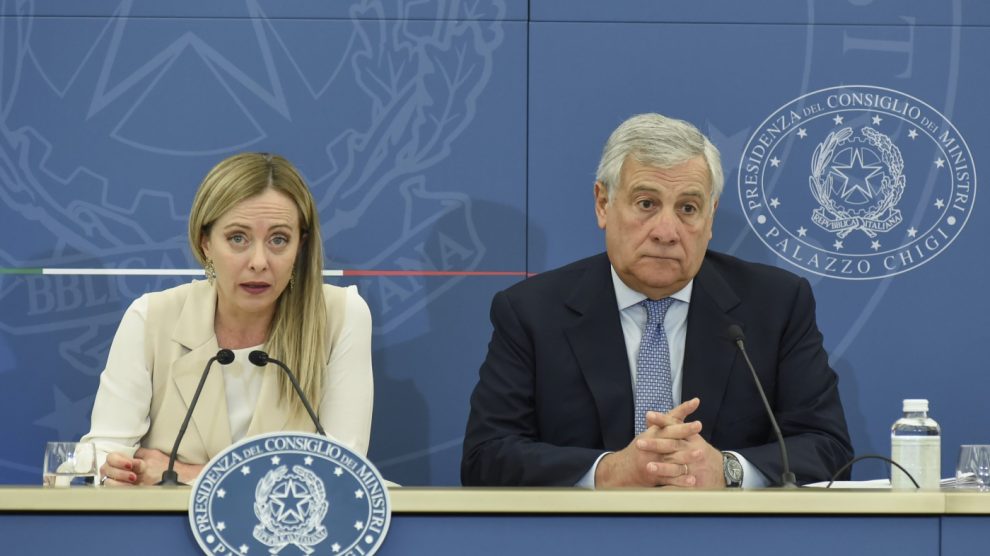Time to rethink the line on Israel-Hamas. “We are increasingly concerned by recent developments, in particular for the safety of hostages, the protection of civilians in the Rafah area, and the risk of a further widening of the conflict. The Italian government takes on board the clear indication that has emerged from Parliament, and we will work in this direction in the international arena and in particular within the framework of the Italian G-7 Presidency.”
- Thus spoke Prime Minister Giorgia Meloni on Thursday, as pressure mounts on Israel to facilitate a de-escalation in the Gaza Strip.
Antonio Tajani doubles down on G-7 diplomacy… The Italian Foreign Minister is deploying Rome’s diplomatic capital towards that objective. He is readying to meet his G-7 colleagues in Germany, on the sidelines of the Munich Security Conference starting Friday, to coordinate a common response as calls on the Israeli government to dial down the ground offensive keep growing.
- The only way forward, as Minister Tajani told Parliament on Wednesday, is a “two people, two States” solution, noting he will reiterate as much while chairing the meeting with his G-7 colleagues.
- “We continue to pursue this objective in the knowledge that the solution to the Israeli-Palestinian conflict will have to be political and not military.”
… while also reaching out to Arab States. Stressing Italy’s historical diplomatic prowess, the foreign minister also noted that colleagues from the Arab world would also convene in Munich for talks. “We have very good relations with them, just as we are fraternal friends with Israel,” he stressed, noting the importance of ongoing dialogue with the likes of Egypt, Qatar and South American States to find a common solution.
We stand by you, but you need to de-escalate. The final objective is guaranteeing Israel’s security while also offering prospects to the Palestinian people, so that they may “free themselves from the bondage of Hamas.” Tens of thousands of Palestinian civilians have died so far, he told RTL, highlighting that Hamas – a “terrorist organisation” that carried out “horrible crimes” – is using them as a “shield” and is provoking Israel into an even harsher reaction to isolate it on the global stage.
- “We must not fall into this trap,” he said, calling on the Israeli army to limit the damage to the population while also reaching for a truce and the immediate release of Israeli hostages.
- A ceasefire is among the most immediate steps to take, he urged on Wednesday,
Words matter. While speaking to the press, Minister Tajani sought to highlight that what’s happening in Gaza is not a genocide – which would entail “a strategy to eliminate a people, like the one [German dictator Adlof] Hitler organised against the Jews.” This, he said, “is a military attack that is causing too many civilian victims,” but it’s clear there isn’t a “will to exterminate a people” – on the Israeli side, that is.
Rome’s moves. Italy has deployed another €10 million to boost the humanitarian aid it’s channelling towards civilians in Gaza, along with demining efforts. In parallel, it has taken command of a European Union mission to stabilise the Red Sea, where deteriorating security conditions are indirectly connected to the Israel-Hamas conflict. It’s all happening amid a wider foreign policy entente between the majority and the opposition.





